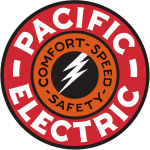| Brush Canyon | ||||||||||||||||||||||||||||||||||||||||||||||||
|---|---|---|---|---|---|---|---|---|---|---|---|---|---|---|---|---|---|---|---|---|---|---|---|---|---|---|---|---|---|---|---|---|---|---|---|---|---|---|---|---|---|---|---|---|---|---|---|---|
 | ||||||||||||||||||||||||||||||||||||||||||||||||
| Overview | ||||||||||||||||||||||||||||||||||||||||||||||||
| Owner | Pacific Electric | |||||||||||||||||||||||||||||||||||||||||||||||
| Locale | Los Angeles | |||||||||||||||||||||||||||||||||||||||||||||||
| Termini |
| |||||||||||||||||||||||||||||||||||||||||||||||
| Stations | 2 | |||||||||||||||||||||||||||||||||||||||||||||||
| Service | ||||||||||||||||||||||||||||||||||||||||||||||||
| Type | Streetcar | |||||||||||||||||||||||||||||||||||||||||||||||
| System | Pacific Electric | |||||||||||||||||||||||||||||||||||||||||||||||
| Operator(s) | Pacific Electric | |||||||||||||||||||||||||||||||||||||||||||||||
| History | ||||||||||||||||||||||||||||||||||||||||||||||||
| Opened | 1908 | |||||||||||||||||||||||||||||||||||||||||||||||
| Closed | August 6, 1918 | |||||||||||||||||||||||||||||||||||||||||||||||
| Technical | ||||||||||||||||||||||||||||||||||||||||||||||||
| Line length | 1.56 mi (2.51 km) | |||||||||||||||||||||||||||||||||||||||||||||||
| Number of tracks | 1 | |||||||||||||||||||||||||||||||||||||||||||||||
| Track gauge | 4 ft 8+1⁄2 in (1,435 mm) standard gauge | |||||||||||||||||||||||||||||||||||||||||||||||
| Old gauge | 3 ft 6 in (1,067 mm) | |||||||||||||||||||||||||||||||||||||||||||||||
| Electrification | Overhead line, 600 V DC | |||||||||||||||||||||||||||||||||||||||||||||||
| ||||||||||||||||||||||||||||||||||||||||||||||||
The Brush Canyon Line was a short-lived Pacific Electric streetcar branch line in Los Angeles. Brush Canyon is now generally known as Bronson Canyon.
